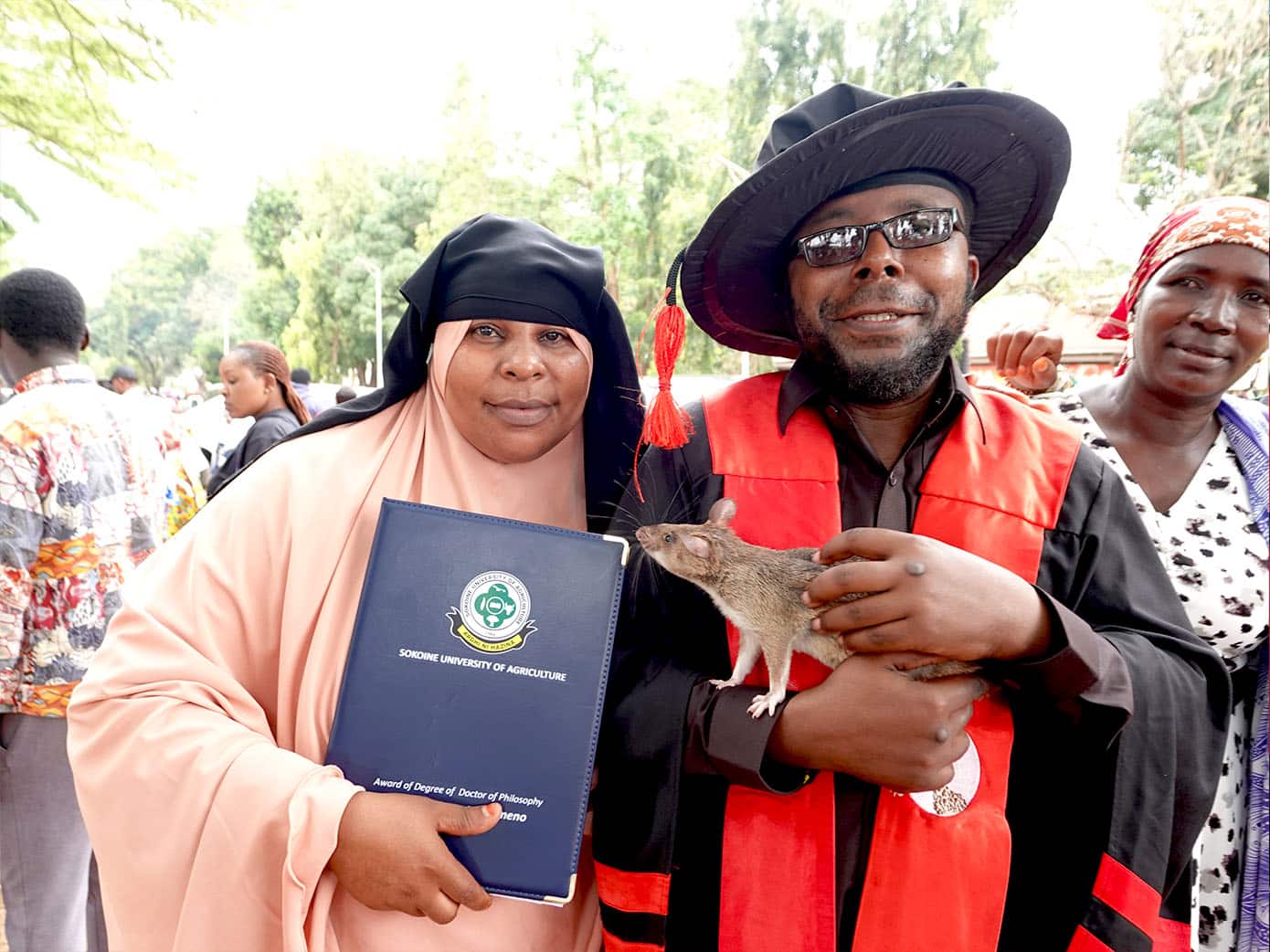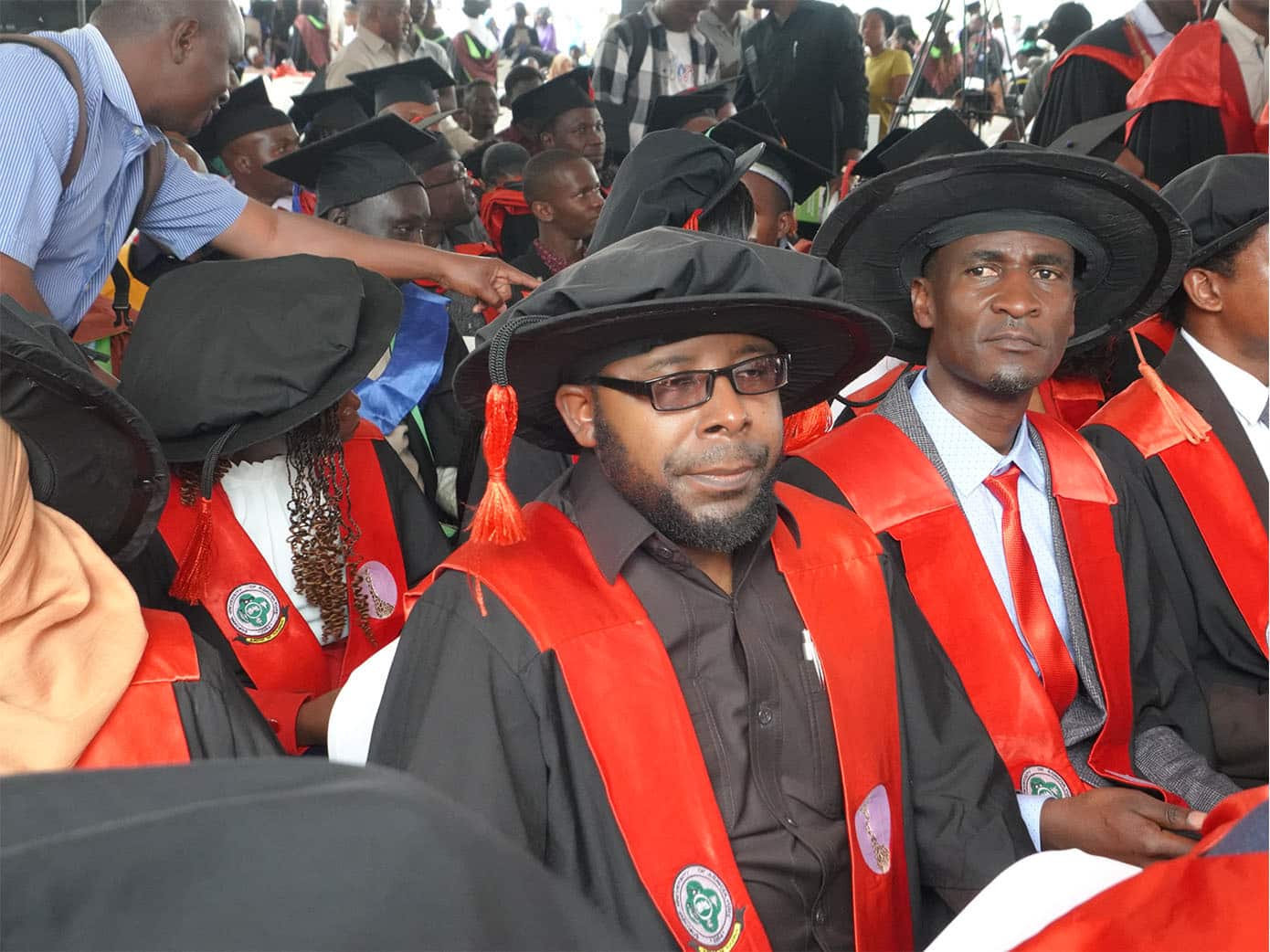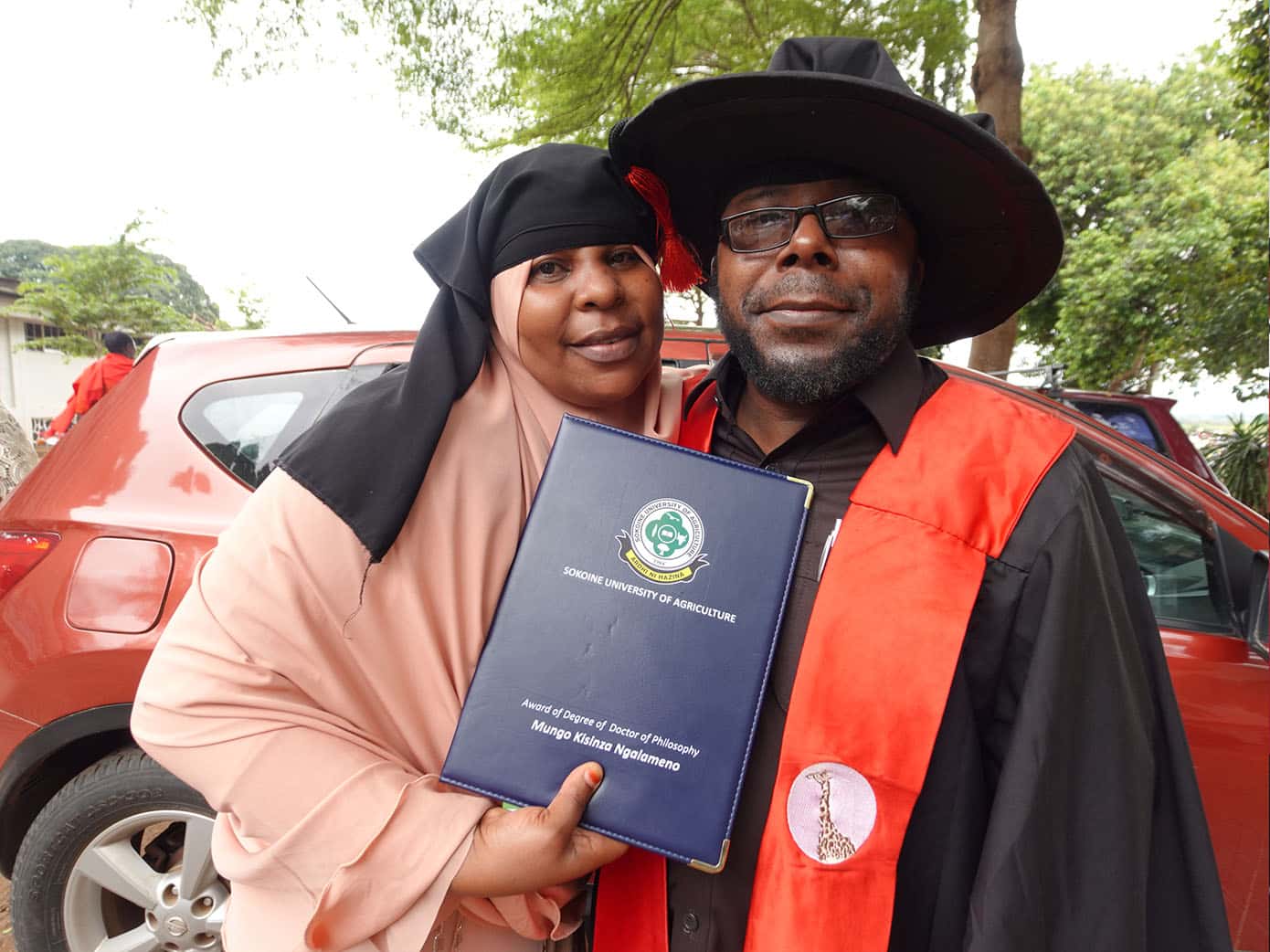In a significant achievement for APOPO and African giant pouched rat research, veterinarian Dr. Mungo Kisinza was awarded a PhD from the Sokoine University of Agriculture (SUA) in Morogoro, Tanzania, at its 44th graduation ceremony. Held at the Edward Moringe campus and presided over by Chancellor Joseph Sinde Warioba, the event celebrated the accomplishments of over 3,000 graduates, with Dr. Kisinza among the 25 PhD recipients. His research, which APOPO has supported extensively, has provided new insights into the reproductive cycles of the African Giant Pouched Rat (Cricetomys ansorgei).
Reflecting on his six-year research journey, Dr. Kisinza said, “I am deeply grateful for the moral and logistical support I received from APOPO. This PhD achievement is not just a personal milestone, but one shared with APOPO, which significantly contributed to my academic journey.”
APOPO’s HeroRATs are renowned for their skills in landmine detection and tuberculosis diagnosis, providing life-saving services in communities where these challenges persist. Dr. Kisinza’s research not only supports APOPO’s mission but also adds to the understanding of this species, which plays an important role in the ecosystem.

Dr. Kisinza’s Research Findings
Throughout his research, Dr. Kisinza focused on one primary question: how do the reproductive cycles of wild African Giant Pouched Rats compare to APOPO’s HeroRATs? His findings, revealing seasonal breeding patterns, are expected to improve breeding practices and support APOPO’s mission.
According to Dr. Kisinza, “African Giant Pouched Rats tend to reproduce during the winter season, particularly between July and September in Morogoro. This is when the rats become sexually active, and as a result, pups are typically born between October and December.” He explained that this timing “ensures that food is abundant, and the animals have sufficient energy reserves to support both the lactating mothers and their young.”
Dr. Kisinza’s research produced three published papers, with a fourth in progress. His first paper “focused on the pattern of reproduction in the African giant pouched rat, Cricetomys gambianus, from Tanzania” aiming to determine whether the animals have seasonal breeding cycles or specific times of the year when reproduction is most likely, as well as the factors that influence these cycles.” His second paper delved into the ovulation patterns of the species, “Uncovering the identity of the living laboratory: A combined approach of COI gene sequencing and phylogenetic analysis of the African giant pouched rats while his third explored the anatomical structure of the male reproductive organs. “Penile and prostate morphology of the African giant pouched rat”

How the Research May Forward APOPO’s Mission
Now a PhD recipient, Dr. Kisinza emphasized that this achievement is not just a title. “While I have always been a veterinarian by profession, my new PhD status adds another layer of expertise. This is an opportunity to apply my knowledge to help people and the planet, with real-world implications linked to my research,” he said.
Dr. Kisinza left a final message for the SUA community, APOPO’s supporters, and the public in general, sharing that his findings “on the reproduction patterns of the African Giant Pouched Rats could offer valuable insights for the species and its role in the ecosystem.”

